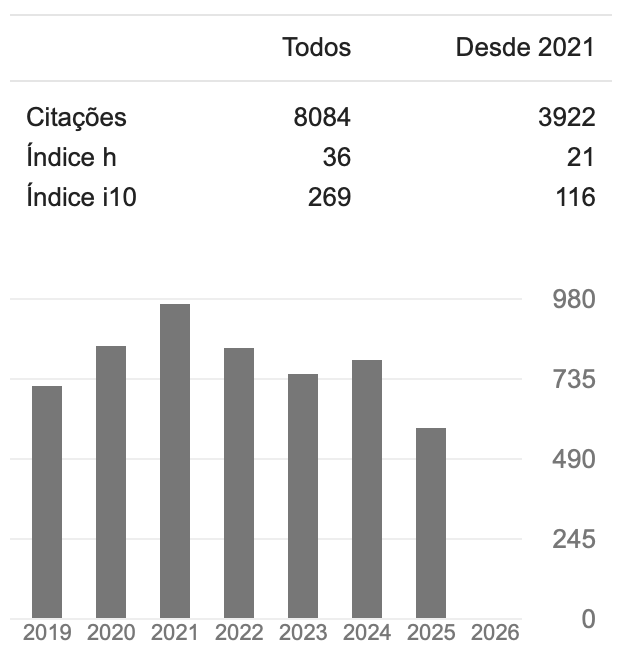Percepções sobre uma intervenção on-line para adolescentes com excesso de peso/obesidade: estudo preliminar
DOI:
https://doi.org/10.17765/2176-9206.2020v13n1p167-179Palavras-chave:
Obesidade, Obesidade Pediátrica, Adolescente, Psicologia, Comportamento AlimentarResumo
Este estudo teve como objetivo analisar as percepções de satisfação dos participantes sobre o APOLO-Teens e fatores comportamentais/psicológicos associados. O APOLO-Teens é um programa psicoeducacional, implementado no Facebook®, durante seis meses, como complemento ao tratamento hospitalar convencional para adolescentes com excesso de peso/obesidade. Participaram 52 adolescentes (71,2% do sexo feminino; M = 14,98 anos, DP = 1,63) que foram alvo do programa APOLO-Teens. Foram avaliados com recurso a medidas de autorrelato quanto à sintomatologia depressiva, qualidade de vida e comportamento alimentar no início, no meio (3 meses) e final da intervenção (6 meses) e preencheram o questionário que avaliou as percepções sobre a participação no programa de intervenção aos 6 meses. Em geral, os participantes revelaram percepções positivas e satisfação com o programa. As sessões de chat tiveram baixa adesão e a maioria dos participantes preferia uma intervenção mais curta. O tema preferido foi “atividade física” e o preterido “alimentação saudável”. Verificou-se uma correlação negativa entre satisfação com os resultados e sintomatologia depressiva e comportamento alimentar disfuncional. Como conclusões vale ressaltar alguns aspectos importantes: 1) reconsiderar a duração do programa e tornar as sessões de chat e o tema “alimentação saudável” mais atraentes; 2) priorizar a sintomatologia depressiva e os comportamentos alimentares disfuncionais como forma de otimizar a adesão a estas intervenções.Downloads
Referências
Dehghan M, Akhtar-Danesh N, Merchant AT. Childhood obesity, prevalence and prevention. Nutr J. 2005;4:1–8.
Goldfield GS, Moore C, Henderson KA, Buchholz A, Obeid N, Flament MF. Body dissatisfaction, dietary restraint, depression, and weight status in adolescents. J Sch Health. 2010;80(4):186–92.
Goodman E, Whitaker RC. A Prospective Study of the Role of Depression in the Development and Persistence of Adolescent Obesity. Pediatrics [Internet]. 2002;110(3):497–504. Available from: http://pediatrics.aappublications.org/cgi/doi/10.1542/peds.110.3.497
Gopinath B, Baur LA, Burlutsky G, Mitchell P. Adiposity adversely influences quality of life among adolescents. J Adolesc Heal [Internet]. 2013;52(5):649–53. Available from: http://dx.doi.org/10.1016/j.jadohealth.2012.11.010
Must A, Strauss RS. Risks and consequences of childhood and adolescent obesity. Int J Obes Relat Metab Disord. 1999;23:S2–11.
Phillips BA, Gaudette S, McCracken A, Razzaq S, Sutton K, Speed L, et al. Psychosocial functioning in children and adolescents with extreme obesity. J Clin Psychol Med Settings. 2012;19(3):277–84.
Puhl R, Brownell KD. Bias, discrimination, and obesity. Obes Res. 2001;9(12):788–805.
World Health Organization. Global Strategy on Diet, Physical Activity and Health [Internet]. 2018 [cited 2019 Jun 4]. Available from: http://www.who.int/dietphysicalactivity/childhood/en/
Saperstein SL, Atkinson NL, Gold RS. The impact of Internet use for weight loss. Obes Rev. 2007;8(5):459–65.
Tsiros MD, Sinn N, Brennan L, Coates AM, Walkley JW, Petkov J, et al. Cognitive behavioral therapy improves diet and body composition in overweight and obese adolescents. Am J Clin Nutr. 2008;87(5):1134–40. Available from: https://academic.oup.com/ajcn/article/87/5/1134/4650762
Zabinski MF, Celio A a, Wilfley DE, Taylor CB. Prevention of eating disorders and obesity via the internet. Cogn Behav Ther. 2003;32(3):137–50.
Ajie WN, Chapman-Novakofski KM. Impact of computer-mediated, obesity-related nutrition education interventions for adolescents: A systematic review. J Adolesc Heal. 2014;54(6):631–45. Available from: http://dx.doi.org/10.1016/j.jadohealth.2013.12.019
An J-YJY, Hayman LL, Park Y-S, Dusaj TK, Ayres CG. Web-based weight management programs for children and adolescents: a systematic review of randomized controlled trial studies. Adv Nurs Sci. 2009;32(3):222–40. Available from: http://www.ncbi.nlm.nih.gov/pubmed/20154526
Doyle AC, Goldschmidt A, Huang C, Winzelberg AJ, Taylor CB, Wilfley DE. Reduction of Overweight and Eating Disorder Symptoms via the Internet in Adolescents: A Randomized Controlled Trial. J Adolesc Heal. 2008;43(2):172–9.
Ruotsalainen H, Kyngas H, Tammelin T, Heikkinen H, Kaariainen M. Effectiveness of Facebook-Delivered Lifestyle Counselling and Physical Activity Self-Monitoring on Physical Activity and Body Mass Index in Overweight and Obese Adolescents: A Randomized Controlled Trial. Nurs Res Pract. 2015;2015:159205.
Williamson DA, Davis Martin P, White MA, Newton R, Walden H, York-Crowe E, et al. Efficacy of an internet-based behavioral weight loss program for overweight adolescent African-American girls. Eat Weight Disord. 2005;10(3):193–203.
Goldschmidt AB, Tanofsky-Kraff M, Goossens L, Eddy KT, Ringham R, Yanovski SZ, et al. Subtyping children and adolescents with loss of control eating by negative affect and dietary restraint. Behav Res Ther. 2008;46(7):777–87.
Goldschmidt AB, Aspen VP, Sinton MM, Tanofsky-Kraff M, Wilfley DE. Disordered eating attitudes and behaviors in overweight youth. Obesity. 2008;16(2):257–64.
Ramalho S, Saint PF, Diana M, Helena S, Mansilha F, Silva C, et al. APOLO-Teens , a web-based intervention for treatment- seeking adolescents with overweight or obesity : study protocol and baseline characterization of a Portuguese sample. Eat Weight Disord - Stud Anorexia, Bulim Obes. 2018;0(0):0. Available from: http://dx.doi.org/10.1007/s40519-018-0623-x
Conceição EM, Mitchell JE, Machado PPP, Vaz AR, Pinto-Bastos A, Ramalho S, et al. Repetitive eating questionnaire [Rep(eat)-Q]: Enlightening the concept of grazing and psychometric properties in a Portuguese sample. Appetite. 2017;117:351–8.
Maloney MJ, McGuire JB, Daniels SR. Reliability Testing of a Children’s Version of the Eating Attitude Test. J Am Acad Child Adolesc Psychiatry. 1988;27(5):541–3. Available from: http://www.sciencedirect.com/science/article/pii/S0890856709658020%5Cnhttp://www.sciencedirect.com.spot.lib.auburn.edu/science/article/pii/S0890856709658020
Teixeira M del CB, Pereira ATF, Saraiva JMT, Marques M, Soares MJ, Bos SC, et al. Portuguese validation of the Children’s Eating Attitudes Test. Rev Psiquiatr Clin. 2012;39(6):189–93.
Henry JD, Crawford JR. The short-form version of the Depression Anxiety Stress Scales (DASS-21): Construct validity and normative data in a large non-clinical sample. Br J Clin Psychol. 2005;44(2):227–39. Available from: http://doi.crossref.org/10.1348/014466505X29657
Leal IP, Passos T, Pais-Ribeiro JL, Maroco J. Estudo da escala de depressão, ansiedade e stresse para crianças (eads- c). 2009;10(2):277–84.
Guerra MP, Lemos MSDE. Adaptação da escala genérica do Inventário Pediátrico de Qualidade de Vida — Pediatric Quality of Life Inventory 4 . 0 — PedsQL , a uma população portuguesa. Quality. 2009;8:83–96.
Fife-Schaw C. Levels of Measurement. 3a Ed. Breakwekk GM, Hammond S, Fife-Schaw C, Smith A, editors. London: Sage; 2006.
Lovibond SH, Lovibond PF. Manual for the Depression, Anxiety, Stress Scales [Internet]. 2nd ed. Sydney: Psychology Foundation; 1995. Available from: http://www2.psy.unsw.edu.au/dass/
Neve M, Morgan PJ, Jones PR, Collins CE. Effectiveness of web-based interventions in achieving weight loss and weight loss maintenance in overweight and obese adults: A systematic review with meta-analysis. Obes Rev. 2010;11(4):306–21.
Warschburger P, Fromme C, Petermann F, Wojtalla N, Oepen J. Conceptualisation and evaluation of a cognitive-behavioural training programme for children and adolescents with obesity Warschburger P. Int J Obes. 2001;25(1):93–95. Available from: http://ovidsp.ovid.com/ovidweb.cgi?T=JS&PAGE=reference&D=emed5&NEWS=N&AN=2001220102
Skelton JA, Irby MB, Geiger AM. A Systematic Review of Satisfaction and Pediatric Obesity Treatment: New Avenues for Addressing Attrition. J Healthc Qual [Internet]. 2014;36(4):5–22. Available from: http://content.wkhealth.com/linkback/openurl?sid=WKPTLP:landingpage&an=01445442-201407000-00001
Finch EA, Linde JA, Jeffery RW, Rothman AJ, King CM, Levy RL. The effects of outcome expectations and satisfaction on weight loss and maintenance: Correlational and experimental analyses-a randomized trial. Heal Psychol. 2005;24(6):608–616. Available from: http://doi.apa.org/getdoi.cfm?doi=10.1037/0278-6133.24.6.608
Goldschmidt AB, Jones M, Manwaring JL, Luce KH, Osborne MI, Cunning D, et al. The Clinical Significance of Loss of Control Over Eating in Overweight Adolescents. Int J Eat Disord. 2008;41:153–158.
Doyle AC, Grange D, Goldschmidt A, Wilfley DE, Doyle C, Grange DLE, et al. Psychosocial and Physical Impairment in Overweight Adolescents at High Risk for Eating Disorders. Obesity. 2007;15(1):145-154.
Arquivos adicionais
Publicado
Como Citar
Edição
Seção
Licença
A submissão de originais para a revista Saúde e Pesquisa implica na transferência da Carta Concessão de Direitos Autorais, pelos autores, dos direitos de publicação digital para a revista após serem informados do aceite de publicação.A Secretaria Editorial irá fornecer da um modelo de Carta de Concessão de Direitos Autorais, indicando o cumprimento integral de princípios éticos e legislação específica. Os direitos autorais dos artigos publicados nesta revista são de direito do autor, com direitos da revista sobre a primeira publicação. Os autores somente poderão utilizar os mesmos resultados em outras publicações, indicando claramente a revista Saúde e Pesquisa como o meio da publicação original. Em virtude de tratar-se de um periódico de acesso aberto, é permitido o uso gratuito dos artigos, principalmente em aplicações educacionais e científicas, desde que citada a fonte. A Saúde e Pesquisa adota a licença Creative Commons Attribution 4.0 International.
A revista se reserva o direito de efetuar, nos originais, alterações de ordem normativa, ortográfica e gramatical, com vistas a manter o padrão culto da língua e a credibilidade do veículo. Respeitará, no entanto, o estilo de escrever dos autores. Alterações, correções ou sugestões de ordem conceitual serão encaminhadas aos autores, quando necessário. Nesses casos, os artigos, depois de adequados, deverão ser submetidos a nova apreciação. As opiniões emitidas pelos autores dos artigos são de sua exclusiva responsabilidade.


















